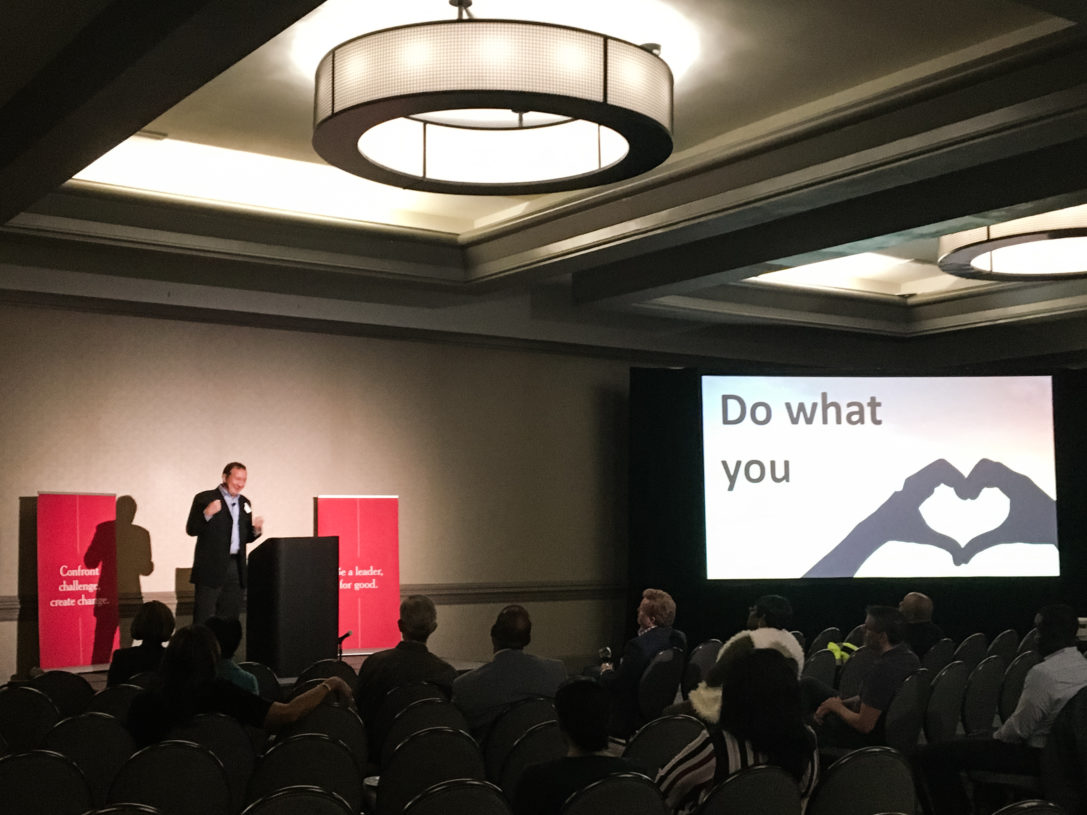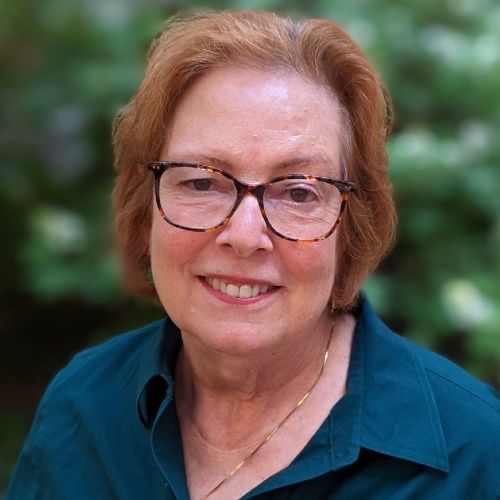‘Do what you love:’ Lessons from the affordable housing industry
- December 30, 2019
- By Jill Young Miller
- 3 minute read

For Brent Sobol, the key to loving your work starts with understanding yourself and knowing what makes you happy. With that, he said recently, you’re in a position to make a positive difference in others’ lives.
Sobol found what he loved to do while he was a student at Washington University in St. Louis’ Olin Business School. In exchange for free rent, he managed his fraternity’s house and loved the work. Then, in the final days of Sobol’s last semester, a group of students asked a favorite professor for advice about starting their post-college lives.
Follow your bliss. The message resonated with me to my core.
Brent Sobol
Sobol recalled the message in a recent talk at the Crowne Plaza Atlanta Midtown.
“That’s the only way you can really feel good about yourself,” he said. “When you feel really good about yourself, you’re in a position to help others and make a difference in their lives.”
Sobol is president and founder of Legacy Community Housing Corp., a nonprofit he formed in 2009. The concept came out of lessons he learned over years of working in the affordable housing industry. During that time, he rehabilitated dangerous and blighted apartment communities, and he became a specialist in crime prevention and turning around multifamily communities.
“I got a reputation for being the guy who could turn around the apartments that were badly broken,” he said. “I was an owner and a property manager. Most apartments, there’s a great divide between the owner and the property manager.” That’s part of the problem with low-income housing, Sobol said.
Address root problems
Low-income housing could work well, he realized, if the goal was a safe community populated with good neighbors. And that goal can be achieved by providing social services that address root problems in the community and by having managers who are engaged in the community, said Sobol, who earned his bachelor’s in business administration from Olin in 1998.
Sobol moved to Atlanta in 2001, a few years after graduation, and became a millionaire by age 30. He also owns Sobol Realty Inc., a residential real estate company his father started in 1954. “My dad had a lot of good sayings,” Sobol said. Among them: “Giving is the path to happiness.”
Over time he has owned, managed, financed and invested in more than 6,500 rental and condominium units with values in excess of $128 million. He has overseen the successful repositioning of 14 apartment communities with capital improvement expenditures totaling over $27 million. During his talk, Sobol spoke about how his wealth and happiness grew alongside his mission to serve low- and moderate-income residents with respectable places to live.
Safety for his residents is paramount. “You need to feel safe in your home before you can do anything else. That’s fundamental,” he said. Landlords should always check tenants’ backgrounds, he said, but not enough do. In Atlanta, Sobol formed partnerships with the police, sheriff’s and fire departments.
Engage residents
Sobol also worked to engage residents. His properties have offered programs for all age groups, including bingo for seniors and daycare for children. “We hired really good teachers who had certifications, so the kids were learning when they came to our daycare.” His own daughter attended the daycare.
He also came up with other ways to add value to his residents’ lives. He created a community garden. He had an orchard of plum, pear and orange trees planted. Anyone can come and take the fruit.
And he was careful to put employees in jobs they love.
“Everybody benefited from that,” he said. “Customers loved us even more. We made more money. And, you know, the world is a better place when [people] love what they do.”
Learn how WashU Olin’s full-time MBA program — with global-mindedness, experiential learning and analytical rigor — equips future business leaders to confront challenge and change the world, for good.
Following Your Bliss
“When you feel really good about yourself, you’re in a position to help others and make a difference in their lives.”

Media inquiries
For assistance with media inquiries and to find faculty experts, please contact Washington University Marketing & Communications.
Monday–Friday, 8:30 to 5 p.m.
Sara Savat
Senior News Director, Business and Social Sciences
